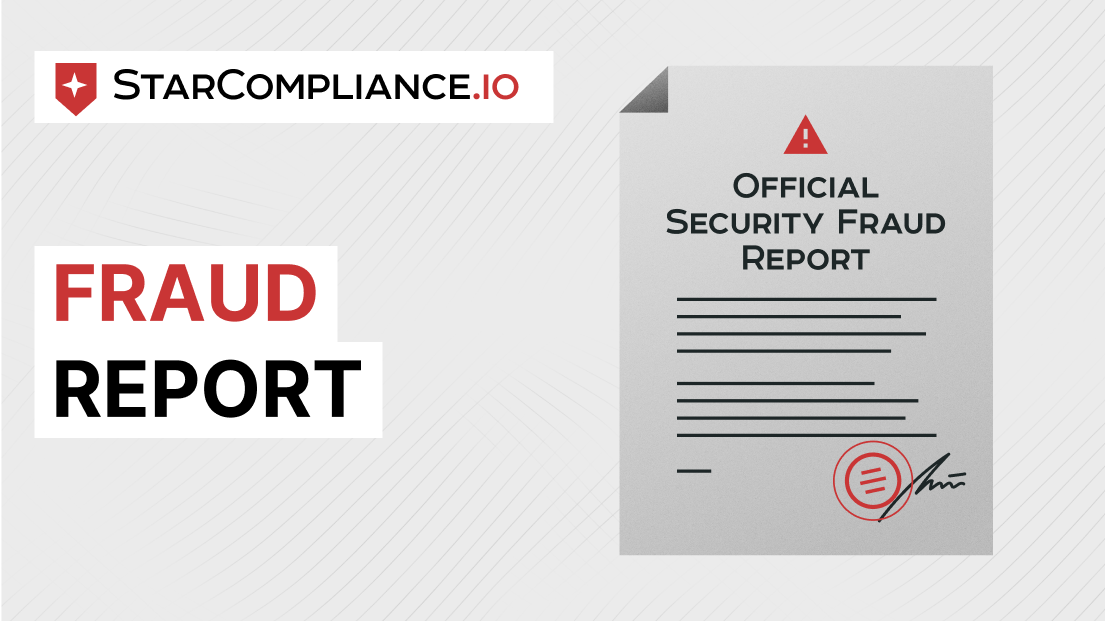
What is a fraud report?
2023-05-10
The Complexity of Policing Crypto Crimes
Law enforcement agencies across different countries may vary in their capabilities and expertise in dealing with cryptocurrency-related crimes. This variance can create challenges when it comes to investigating and addressing crypto thefts effectively. In some cases, only specific departments or teams within law enforcement may possess the necessary knowledge and skills to handle crypto-related cases.
When a crypto theft occurs, victims often face the daunting task of navigating through the intricacies of reporting the incident to the appropriate authorities. The process can be time-consuming, involving multiple agencies and bureaucratic hurdles. Meanwhile, cybercriminals take advantage of this window of opportunity to move the stolen funds through various mixing services, making it even harder to trace and recover the assets.
To address this issue, the Fraud Report service has been developed. It offers a solution that expedites the response to crypto theft incidents. When a user files a fraud report, a team of investigators reviews the case thoroughly. If they determine the transaction to be associated with fraudulent activity, it is marked as questionable. This mark serves as a warning for cryptocurrency exchanges that receive such flagged transactions, prompting them to take immediate action in collaboration with law enforcement agencies.
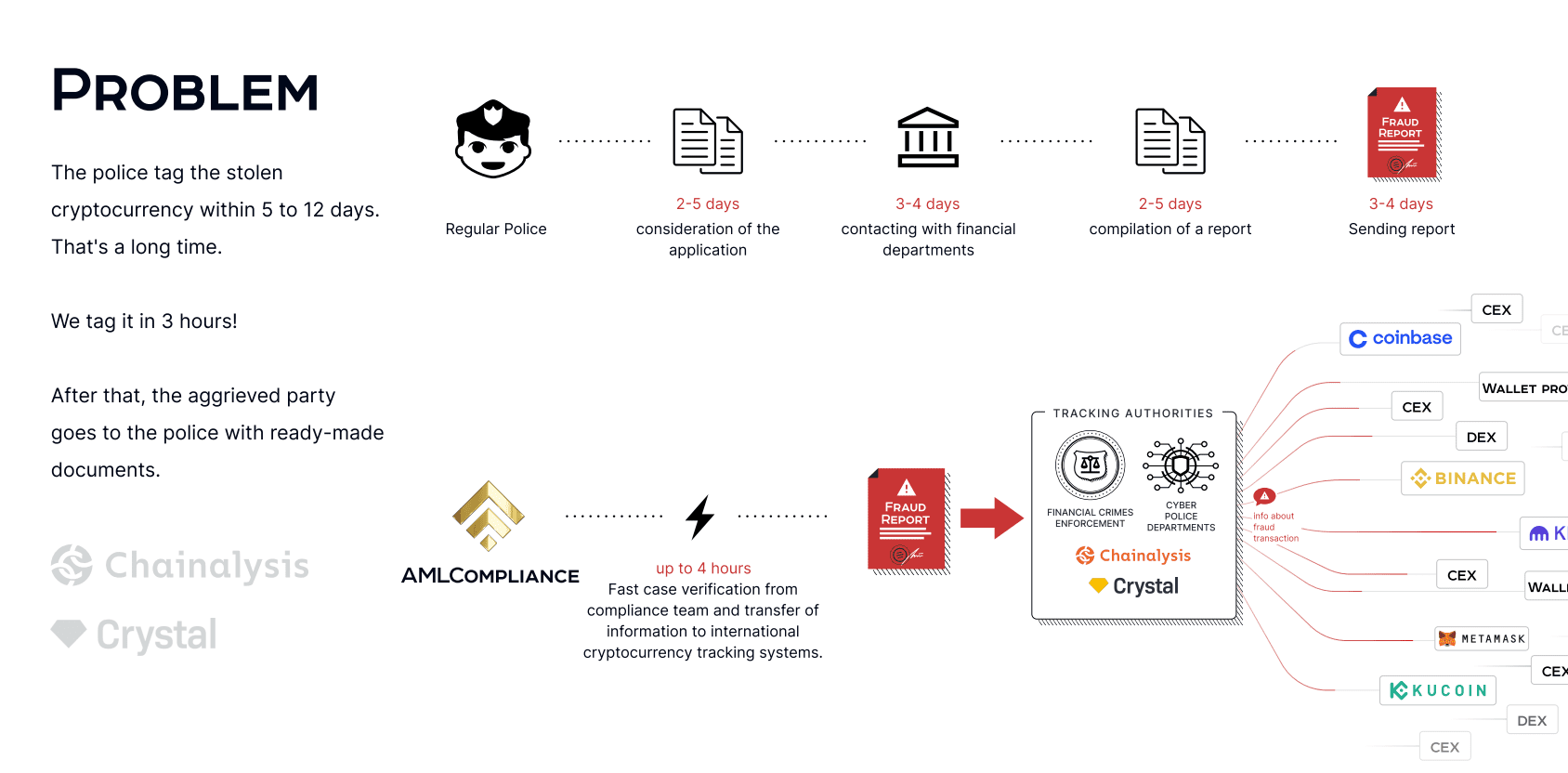
Comparison of the speed performance of the police and our Fraud Report service
The flagged transaction is reported to several popular Anti-Money Laundering (AML) tools, such as Chainalysis and Christal Blockchain, due to the team’s certified partnership status. Consequently, such reports are submitted in a matter of hours, expediting the process even further.
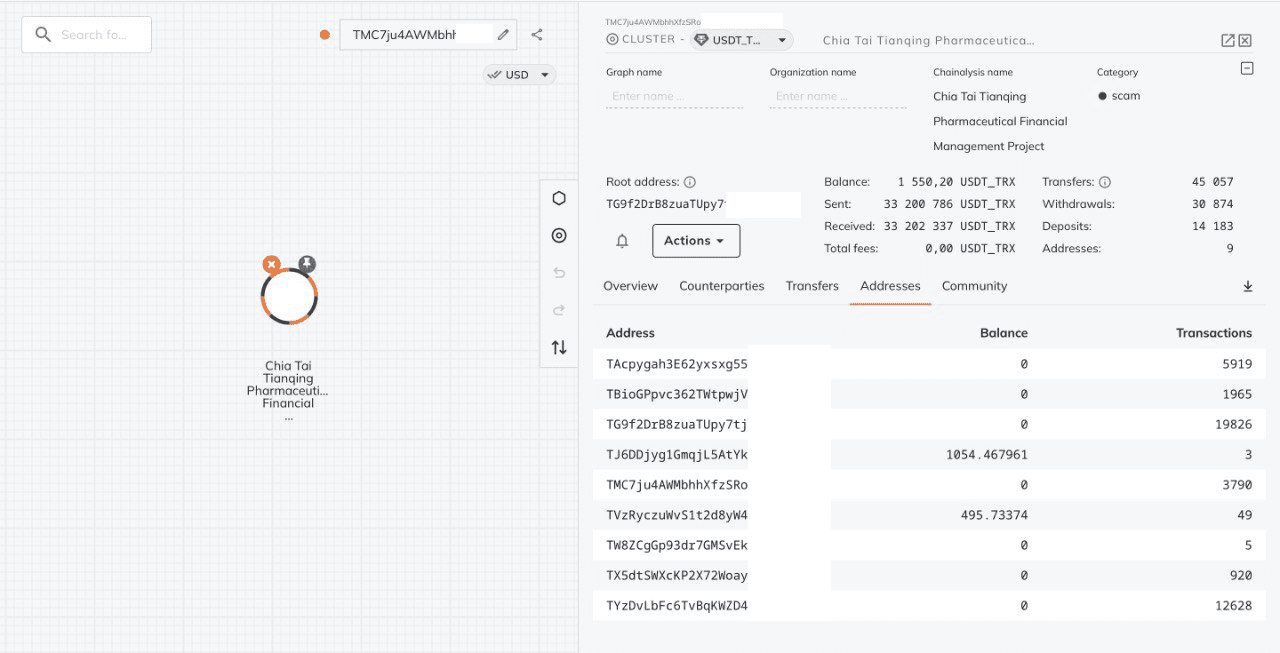
Above is a classic example of a submitted report to a specific address, which already contains marked assets and flagged fraudulent transactions.
Risk monitoring when working with exchanges
- One of the primary challenges faced by the Fraud Report service is the differing responses from various cryptocurrency exchanges. While many exchanges promptly freeze the recipient’s account upon receiving a fraud report, some may not take immediate action. The reasons for varying responses could be due to differences in compliance protocols, resource constraints, or jurisdictional complexities.
To address this limitation, the Fraud Report service actively collaborates with exchanges to educate them about the importance of swift action against flagged transactions. By fostering open communication and sharing best practices, the service aims to create a more consistent response from exchanges, further bolstering the overall effectiveness of fraud reporting.
- Another potential risk is related to the withdrawal of funds to decentralized exchanges (DEX). Nevertheless, DEX platforms are actively working to counter attempts by malicious actors to exploit their platforms.
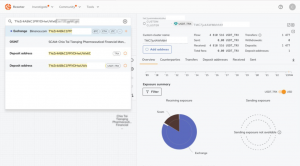
Sending funds to exchanges in order to confuse the trail
In any case, these reports display all the valuable information, including deposit addresses, withdrawal addresses, movement of funds between CEX and DEX exchanges, amounts of various tokens, and the actual occurrence of scams.
In addition to facilitating the recovery process, fraud reports also contribute to the overall security of the crypto ecosystem. As more exchanges and market participants become aware of fraudulent activities, they can implement stricter compliance measures and improve their risk assessment protocols. This collective effort creates a stronger line of defense against cybercriminals and acts as a deterrent for potential wrongdoers.
Real-time Transaction Tracing
One of the most significant advantages of the Fraud Report service is its ability to flag suspicious transactions in real-time. When an investigator determines a transaction to be fraudulent, this information is promptly disseminated to relevant parties, including cryptocurrency exchanges, financial institutions, and regulatory bodies. Such timely notifications enable these entities to freeze accounts associated with the flagged transaction, halting the flow of illicit funds and preserving the victim’s assets.
Moreover, the collaboration between the Fraud Report service and various AML tools provides a comprehensive analysis of the stolen funds’ movement, revealing valuable insights into the criminals’ modus operandi. This intelligence can be shared with the broader crypto community and law enforcement agencies, contributing to the development of more effective anti-fraud strategies and enhancing the overall security landscape.
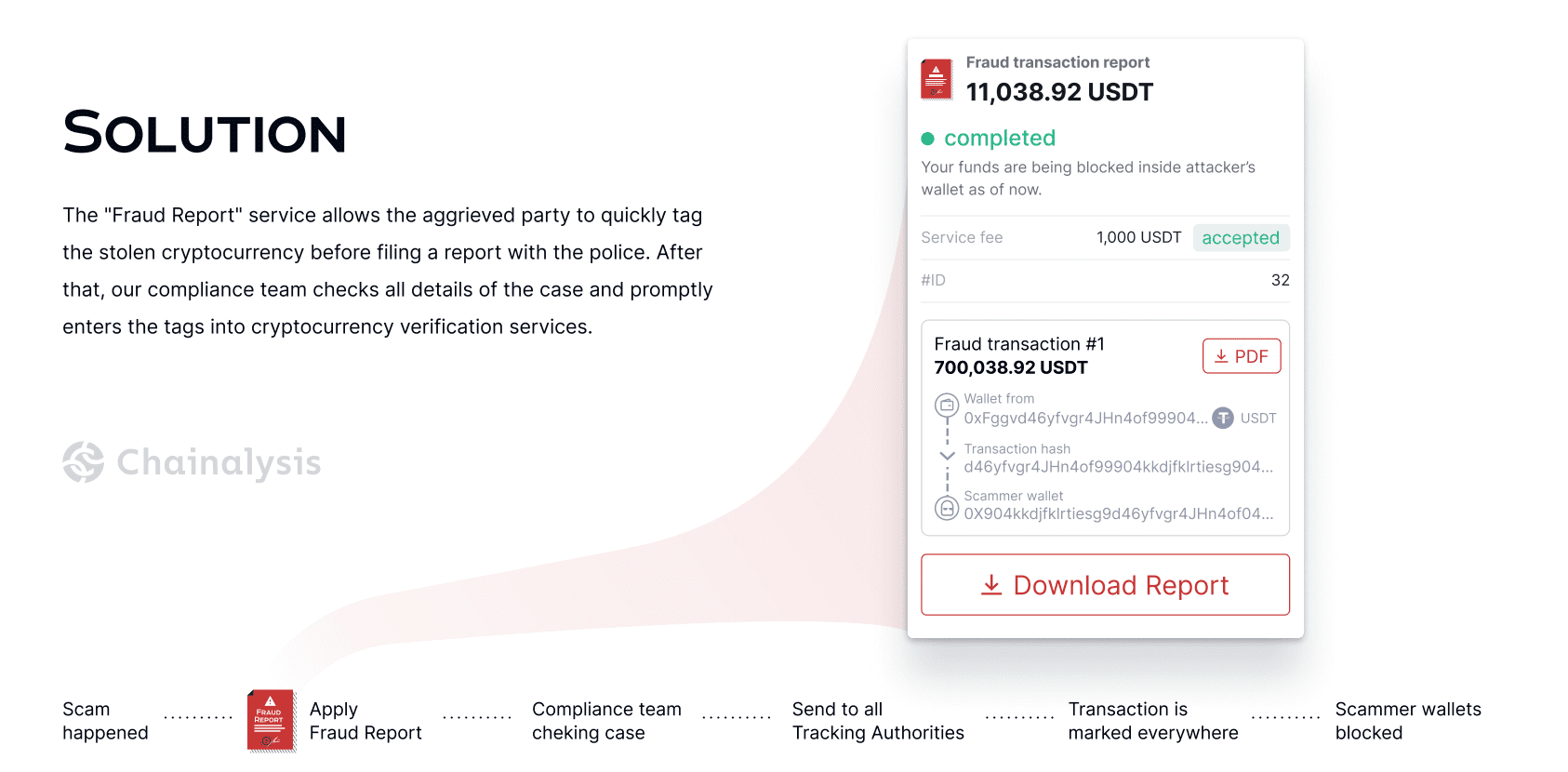
Illustrative algorithm of Fraud Report service operation
If you have experienced cryptocurrency theft, the first step in localizing the problem is to file a transaction fraud report with StarCompliance. By doing so, you can notify other market participants that the transaction in question is fraudulent, thus increasing the chances of recovery and bringing the perpetrators to justice.
